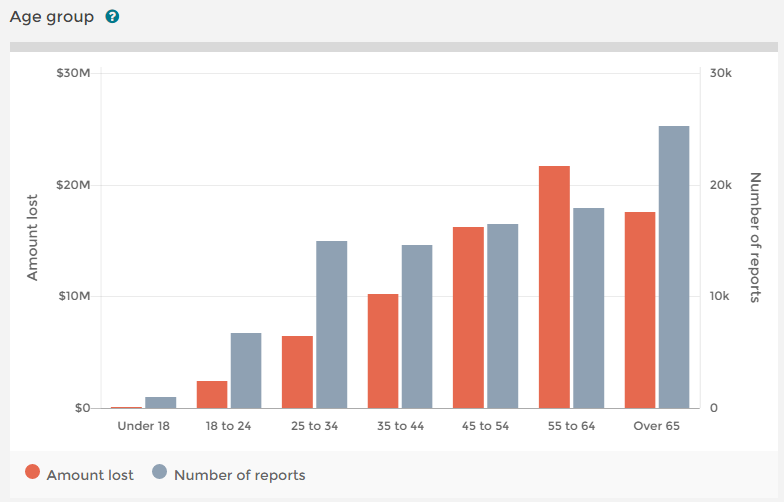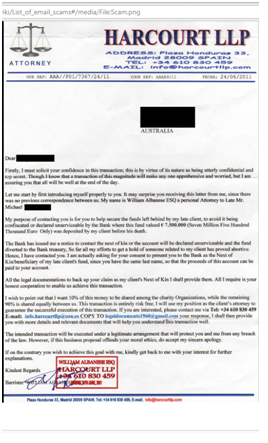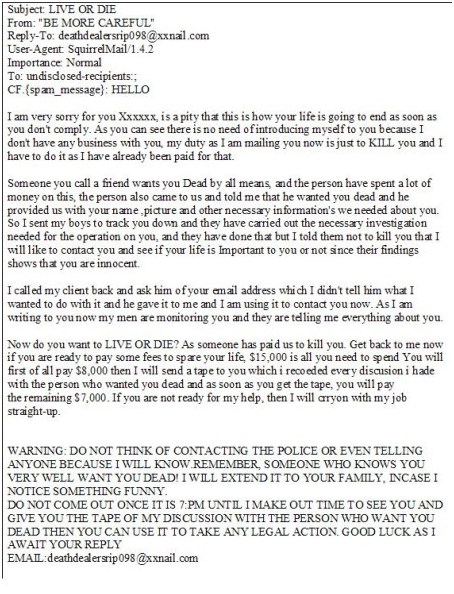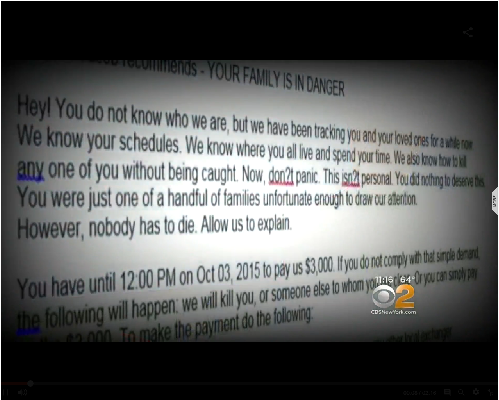HITMAN SCAM
What is Hitman Scam?
Death is scary! For everyone on the planet, death seems to be a harsh reality that no one wants to face. The very thought of it creates uneasiness, tension, and turmoil in the minds of individuals. There is a group of fraudsters who exploit this fear of death in common people to execute their criminal strategies and make money. Scammers constantly develop new strategies and techniques, making it increasingly difficult for the average person to identify a potential scam. One such new and disturbing tactic involves playing a life-and-death game with the victim. In this scam, the fraudster poses as a 'hitman' allegedly hired to kill the victim, and then threatens to carry out the act unless the victim agrees to pay a large sum of money.
The "hitman scam" is a form of online extortion where individuals receive threatening messages—usually via email or social media—claiming that a contract killer has been hired to harm or kill them. These messages are designed to instill fear and panic, asserting that the only way to avoid danger is by paying a specified amount to the sender. Scammers often demand payment in cryptocurrency, making the transaction difficult to trace. It’s important to understand that these threats are completely false. The scammers have no real intention or ability to harm the victim. The entire purpose of the hitman scam is to exploit fear and manipulate victims into making payments. If someone receives such a threat, it is crucial to stay calm, avoid responding to the message, and report the incident to local law enforcement authorities.

About Hitman Scam:
Popularly known as the "Hitman scam," this criminal strategy was first attempted by scammers in early 2007. To execute this fraudulent plan, the scammer sends an email to the victim, claiming to be a hitman hired by a family member, friend, or relative to kill them. The email typically states that the scammer will spare the victim’s life only if they agree to pay the amount mentioned in the message. This is a fear-based tactic where the scammer assumes that the victim will become frightened and comply with the demand. Unfortunately, there have been several cases where scammers have succeeded in such extortion attempts. The scammer manipulates the emotions of the victim by alleging that someone close to them wants them dead. The very idea of death causes panic, making it less likely for the victim to question the authenticity of the email.
The scammer exploits the fear and confusion that arise while reading the message. They include realistic-sounding lines such as "I am monitoring you all the time" or "All your activities are being watched," which deepen the psychological pressure. While the victim may initially doubt the message’s legitimacy, these hitman scammers are often skilled in crafting emails that sound genuine and convincing. Additionally, these scammers instruct the victim not to share the email with anyone, warning that doing so would disrupt the plan and potentially trigger the supposed contract killing. They present the payment as a chance to "buy time" or "save their life," thereby increasing emotional manipulation.
Typically, these emails are sent in bulk to a wide range of email addresses, without the scammer knowing which ones are valid. The scammer creates fake email IDs to send out these hitman scam messages. Based on responses received, they continue communicating with victims and attempt to extract money. As this method showed some success, scammers have evolved their techniques. They began sending text messages and SMSs directly to victims' mobile phones, adding another layer of credibility. Hitman scammers often obtain mobile numbers from lead-selling companies, and when the message is delivered to a personal phone number, it feels more legitimate to the victim—who may wonder how their private number was obtained. The ultimate goal is to create a direct, personal connection to make the scam appear authentic. These scammers typically use newly purchased or fake numbers, making them difficult to trace.
The "hitman scam" is a deceptive extortion scheme where individuals receive threatening messages—usually through email, social media, or text—claiming that a contract killer has been hired to harm or kill them. These threats are designed to provoke fear and panic, creating the illusion of imminent danger. The scammer then demands a payment, often in cryptocurrency, to supposedly cancel the hit and spare the victim’s life. It is important to understand that these threats are entirely false. The scammers have no intention or means to cause any real harm. Their only goal is to exploit fear and manipulate the victim into paying money. If you or someone you know receives such a threat, it is crucial to remain calm, avoid replying, preserve all evidence, and report the incident to law enforcement immediately. Awareness and caution are the most effective defenses against these types of online extortion scams.

What Should you do if you Recevie a Mail / Message from a Hitman ?
Victims may feel shocked, panicked, and scared upon receiving death threats from anyone. The mere thought that such a threat could come from someone close can deeply shake a person's self-confidence. If a common person receives such a death threat, the following points are recommended:
- Police and other scam-fighting authorities advise victims to remain calm and read the email carefully multiple times. This approach often reveals clues that can help identify the scam as a hitman hoax.
In most cases, it is highly recommended to delete the email immediately. Scammers usually don’t even know whether the email ID they are targeting is genuine. Responding may give them confirmation that the email address is active, encouraging further threats. - Do not respond to any such emails or text messages. If you have any doubts, report the message or email immediately to your nearest police station or cybercrime unit.
- Check the source of the email ID or phone number using trusted online scam-checking tools. This can help confirm whether the communication is coming from a known scammer.
- Around 90% of death-related emails and messages are reported to be hitman scams. Therefore, you can confidently delete the message and rest assured.
-
If you are genuinely curious and wish to expose the scammer, you may choose to respond under police supervision to help law enforcement trace and apprehend the scammer.

Statistics Showing Hitman Scam Details :

SOME EXAMPLES OF HITMAN SCAM MESSAGES / EMAILS :




Feel Free to use our Spam Checker Tool
We are providing the Spam Checker Tool for your convenience. Here, you can enter the email or the contact number that you suspect to be a scam. This tool checks it with our spam database list and ensures whether the email or the phone number is a real one or bogus.
Report scam to United States government – You could file a complaint about a scam or other crime here.

